Question And Answer
Publications
Articles, publications, books, tools and multimedia features from the U.S. Institute of Peace provide the latest news, analysis, research findings, practitioner guides and reports, all related to the conflict zones and issues that are at the center of the Institute’s work to prevent and reduce violent conflict.
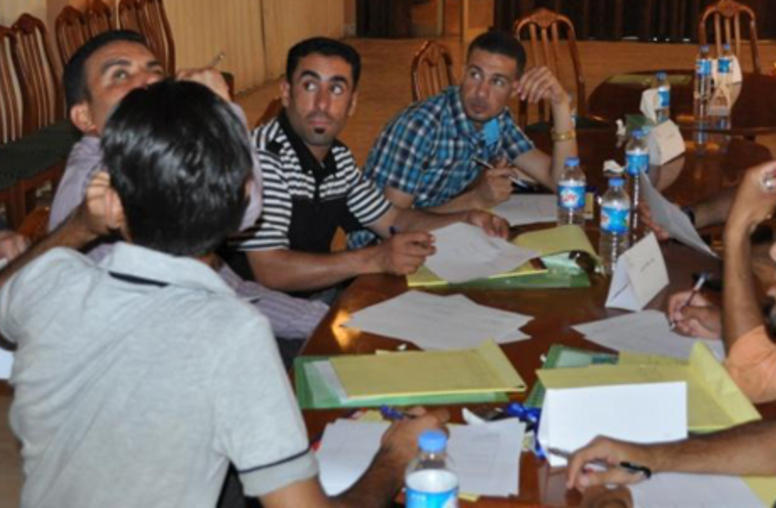
Never too Young for Peace
Recognizing the potential role of youth as catalysts of social change, USIP's Iraq Grant Program partners with a number of youth organizations to promote peacebuilding and conflict resolution, and strengthen tolerance and mutual understanding in Iraqi communities that continue to experience high levels of intergroup conflict.
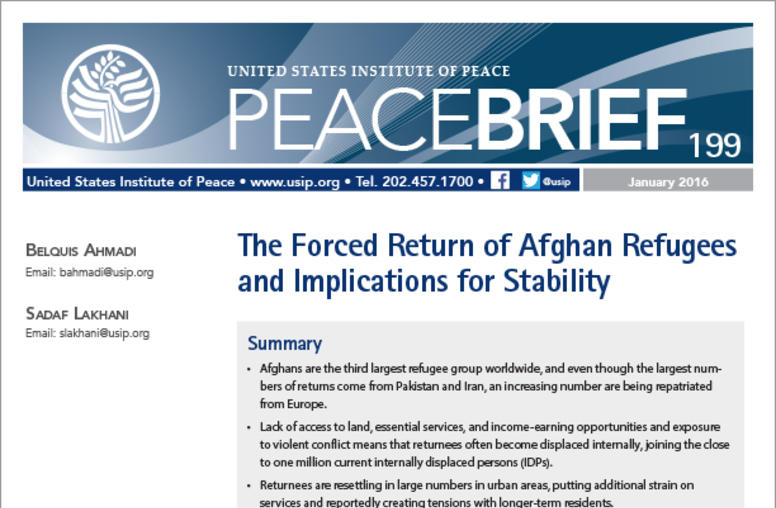
The Forced Return of Afghan Refugees and Implications for Stability
Afghan refugees have been returning home from Pakistan and Iran in growing numbers, and many of these returns have been involuntary. The situation is adding stress to an already challenging environment, characterized by insecurity, lack of access to employment and services, land and housing tensions, and rapid urbanization. This brief presents important considerations for developing a clear, well-coordinated strategy that addresses the impacts of large-scale returns and the specific needs of ...

The ISIS Genocide Declaration: What Next?
Sarhang Hamasaeed, senior program officer for the Middle East programs at the U.S. Institute of Peace, testified before the House Foreign Affairs Subcommittee on Africa, Global Health, Global Human Rights and International Organizations.
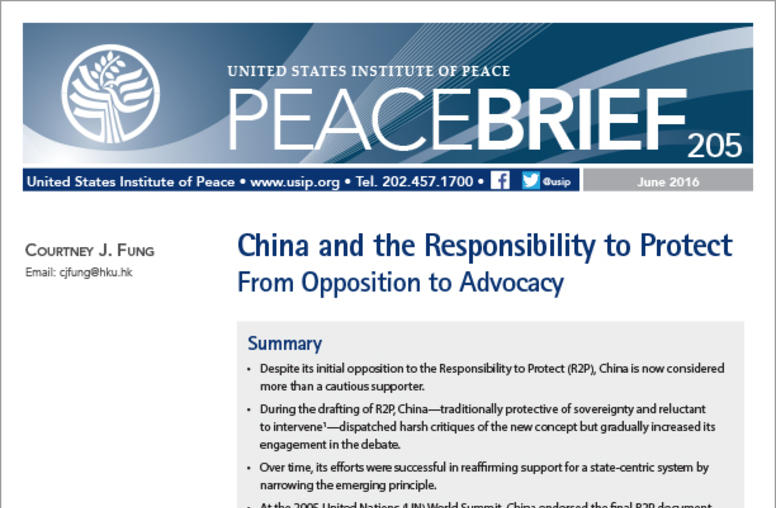
China and the Responsibility to Protect: From Opposition to Advocacy
Initially opposed to the Responsibility to Protect (R2P), China has become a consistent advocate of the principle, endorsing its application in multiple countries while urging a constrained, multilateral approach to the use of force. This brief examines the trajectory and significance of China’s support for R2P. Given the country’s rising role in shaping the rules of global governance, continuing to gain its buy-in will be crucial in achieving the principle’s mandate.

China’s Troop Contributions to U.N. Peacekeeping
China, traditionally reluctant to intervene, has become a major contributor to UN peacekeeping operations. However, given its available assets, the country has the capacity to increase its commitments and play a key role in improving peacekeeping operations. This brief examines China’s rise as a global security provider and what can be done to drive its further engagement in the peacekeeping landscape.
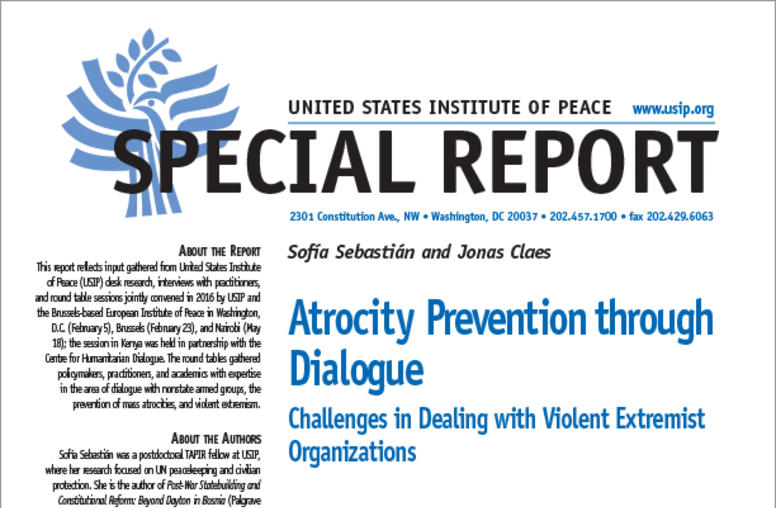
Atrocity Prevention through Dialogue
Dialogue with violent extremist groups is a controversial practice, even when used to prevent widespread violence or atrocities. Humanitarian dialogue may serve as a crisis-mitigation instrument, offering short-term relief and civilian protection. When the risk of atrocities is remote, political dialogue can be used for structural or upstream prevention aimed at conflict resolution or addressing community grievances. Though dialogue as a peacebuilding tool has potential in any stage of a conf...
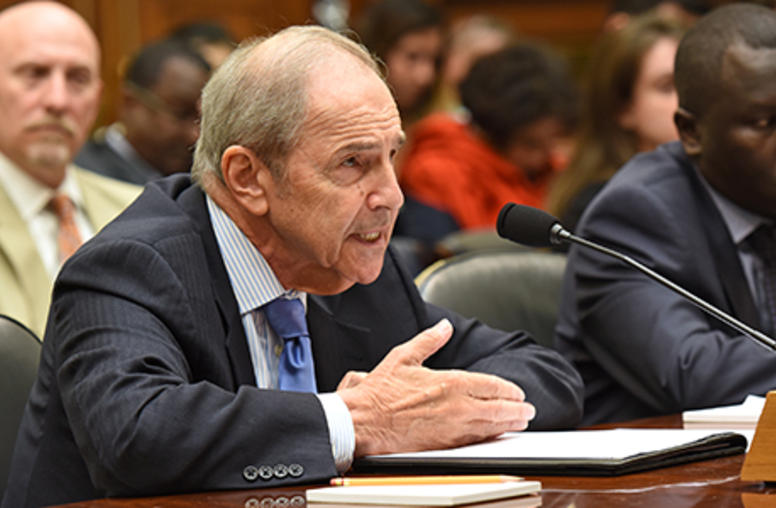
The Growing Crisis in South Sudan
Princeton N. Lyman, senior advisor to the president at USIP, testifies before the House Foreign Affairs Subcommittee on Africa, Global Health, Global Human Rights and International Organization.
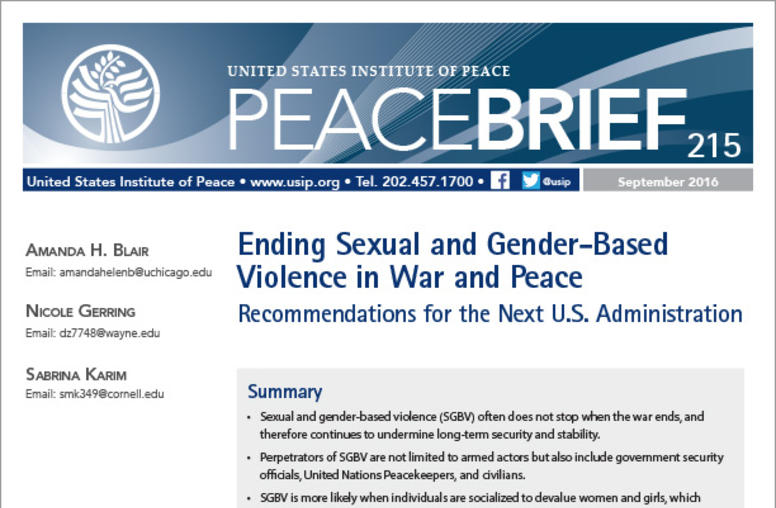
Ending Sexual and Gender-Based Violence in War and Peace
Sexual and gender-based violence (SGBV) can undermine long-term state stability and security even after states have transitioned out of violent conflict. This brief highlights four areas around SGBV that require urgent attention: the conflict cycle, moving beyond armed actors, protectors as perpetrators, and the role of SGBV in threatening political participation. This Brief was prepared by several members of the Missing Peace Young Scholars Network, supported through a longtime partnership b...
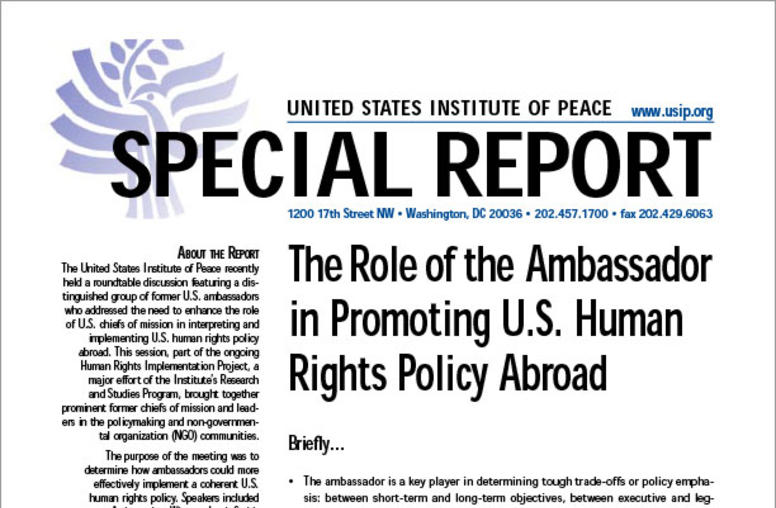
The Role of the Ambassador in Promoting U.S. Human Rights Policy Abroad
Summary The ambassador is a key player in determining tough trade-offs or policy emphasis: between short-term and long-term objectives, between executive and legislative priorities, between strategic interests and specific human rights concerns, between public and private diplomacy, between coercive and cooperative approaches, and between unilateral and multilateral approaches to specific problems.
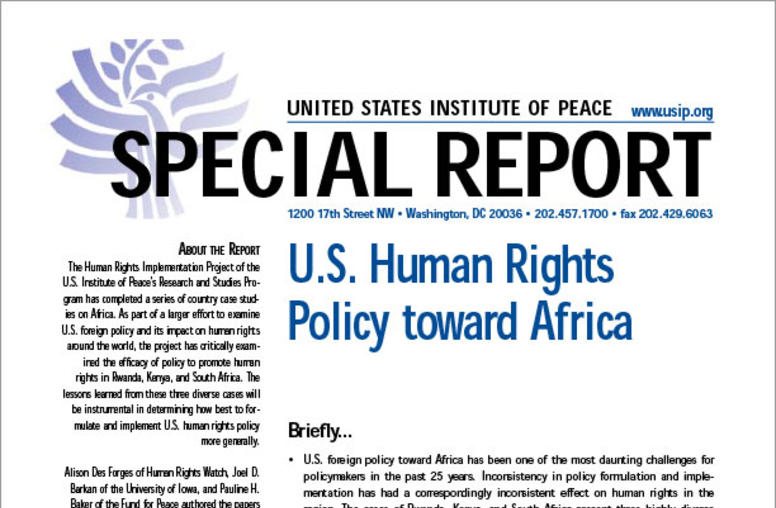
U.S. Human Rights Policy toward Africa
The Human Rights Implementation Project of the U.S. Institute of Peace's Research and Studies Program has completed a series of country case studies on Africa. As part of a larger effort to examine U.S. foreign policy and its impact on human rights around the world, the project has critically examined the efficacy of policy to promote human rights in Rwanda, Kenya, and South Africa. The lessons learned from these three diverse cases will be instrumental in determining how best to formulate an...